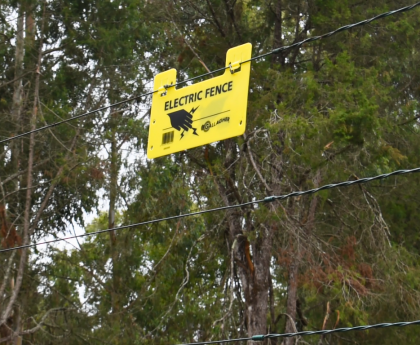By Chemtai
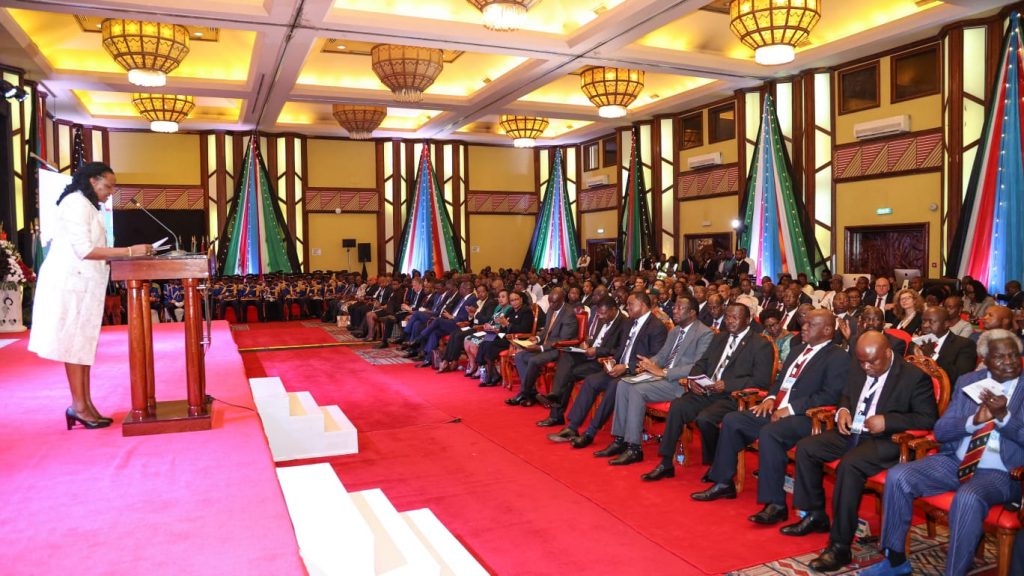
The 3rd Regional symposium on greening judiciary, which focuses on building the capacity of judges in applying and enforcing environmental laws in Africa, while promoting the rule of law in environmental matters, opened Monday, in Nairobi.
The three days event, seeks to raise awareness of the importance of environmental sustainability within the judiciary system and to encourage the adoption of eco-friendly practices.
President William Samoei Ruto, who opened the conference, set the tone for the conference, themed ‘Strengthening the Role of Judiciaries in Addressing Climate Change in Africa,’ emphasizing the crucial role of Africa’s institutions and leadership in combating climate change.
“Your decisions will matter a great deal. They will shape climate governance and enhance environmental justice, by promoting accountability for environmental harm and facilitating collective action by stakeholders.” Ruto said, adding that ‘’the institutional reconfigurations and economic resets emanating from this structural change will install Africa not only as the continent of the future but as the world’s green economic superpower.”
The president expressed his conviction that the looming climate disaster is particularly tragic for Africa, which is on the cusp of a new era of peace and prosperity as the continent of the future. Although Africa is the least polluting continent, it is the most adversely affected by climate change.
“It is important for Africa to undertake concerted action to win the war on climate change because it is disproportionately affected by its adverse impacts and because necessary global responses to climate change are going to institute structural change,” Ruto said.
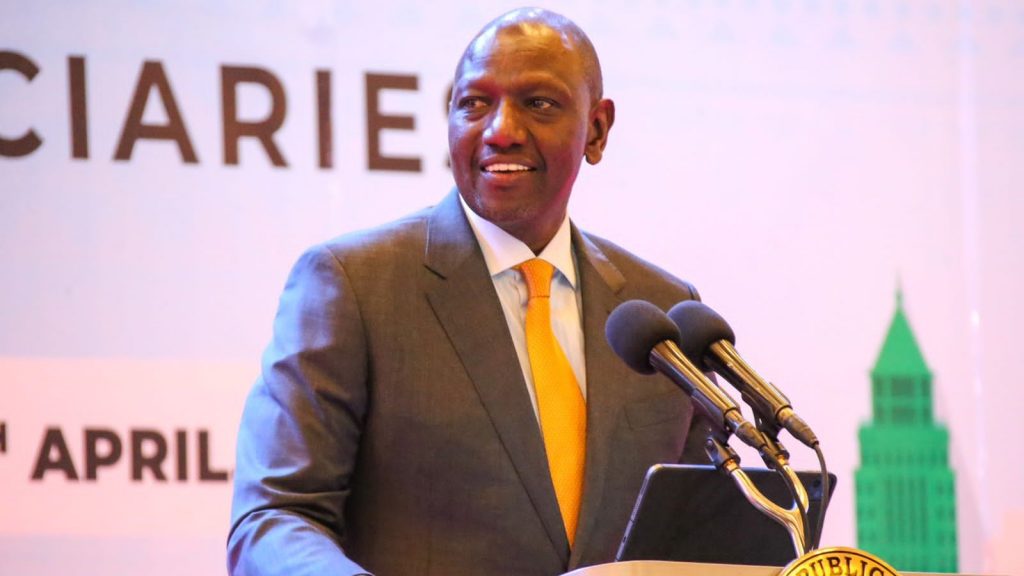
President William Ruto during his opening speech at the 3rd Regional symposium on greening judiciary, in Nairobi, April 3, 2023. Photo Credit: Government press.
The president addressed a diverse range of attendees, including Chief Justices, judicial educators, judicial officers, practitioners, and experts from countries spanning Kenya, Uganda, Tanzania, Somalia, South Africa, Mozambique, Ghana, Malawi, and beyond.

Excitement charged the atmosphere as legal minds gathered under the Africa Judicial Education Network on Environmental Law (AJENEL).
In her opening remarks, Chief Justice and President of the Supreme Court of Kenya, Martha Koome, emphasized the crucial role of judiciaries in the fight against climate change.
“Rising temperatures, erratic weather patterns, and the loss of biodiversity put our people, economies, and natural resources at risk,” she said at the plenary, charging judges with the responsibility to interpret and apply the law in a manner that promotes environmental sustainability, social equity, and intergenerational justice.
Koome cited Kenya’s constitution, noting that Article 42 enshrines a clean and healthy environment as a fundamental human right, while Articles 69 and 70 establish the framework for enforcing environmental rights and obligations.
“Our courts must play a decisive role in driving adaptation, mitigation, and resilience-building efforts to combat climate change and secure a sustainable future for our people,” she said.
“As guardians of the rule of law and protectors of constitutional rights, we have a unique responsibility to ensure that our decisions and judgments contribute to a greener, more resilient, and more sustainable Africa.”

Chief Justice and President of the Supreme Court of Kenya, Martha Koome, during her speech at the conference, in Nairobi, April 3, 2023. Photo Credit: Government press.
Koome urged the Chief Justices and judges present to collaborate in developing a specifically African legal framework to address shared concerns in the fight against climate change. She stressed the importance of sharing experiences and working together to build a sustainable future for the continent and its people.
Justice Oscar Angote, Presiding Judge-Environment and Land Court, Nairobi, noted that the symposium seeks to enhance judicial capacities as well as provide policy direction from heads of judiciaries and judicial training institutes across Africa, particularly in disputes arising from climate change.
Angote stated that Africa is warming faster than the rest of the world, leading to droughts, floods, food insecurity, poverty, and displacement.
“These impacts of climate change present us an opportunity as a people to actualize our aspirations as contained in Agenda 2063: The Africa We Want —Combating climate change is not just about emissions but also justice, and more so justice for the indigenous and vulnerable people,” he said.
Justice Oscar Angote, Presiding Judge-Environment and Land Court, during his speech at the symposium, in Nairobi. April 3, 2023. Photo credit: Government Press
Justice Angote expressed hope that the symposium would provide exposure to diverse perspectives to broaden understanding of climate change and how to strengthen the judiciaries in Africa in advancing the conversation of reduction of greenhouse emissions, not only in Africa but globally.
National Assembly Speaker, Dr. Moses Wetang’ula on the other hand challenged the attendees to come up with punishable measures for environmental destruction. He emphasized the need for strategic legislation to address climate change and save the ecosystem.
Wetang’ula encouraged the judicial fraternity to review existing environmental legislation to capture current realities and ease pressure on the environment.
He stressed the need for strengthening laws on environmental use and management to mitigate adverse climate change.
“I urge my colleagues in the judiciary to influence the executive by making laws that protect the environment and ensure punitive measures for those destroying the environment through pollution of water bodies, deforestation, and careless gas emissions among other harmful practices.” he said.
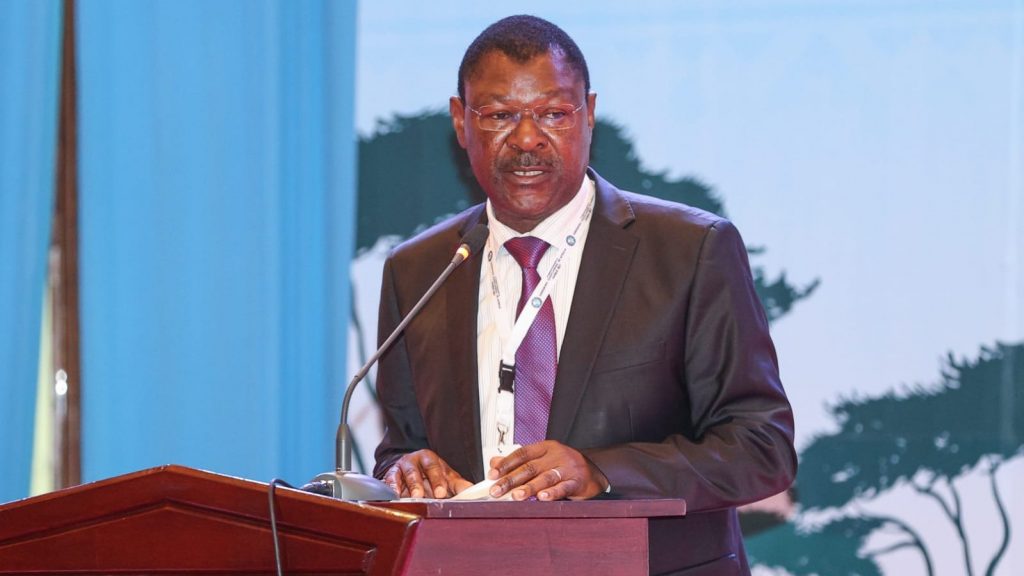
National Assembly Speaker, Dr. Moses Wetang’ula addresses delegates at the opening of the 3rd Regional Symposium on Greening Judiciaries, in Nairobi/April 3, 2023. Photo credit: Government Press
Wetangula acknowledged Kenya’s enacted laws, including the ban on plastic bags, promotion of renewable energy, and conservation of forests and natural resources and endorsed President William Ruto’s tree-planting project as a positive step towards a greener pathway.
“The Law Society of Kenya is working on collaborations to advocate for the protection of the environment and has developed a draft bill/model law on resettlement action planning to fill the existing gap in law reform,” said Eric Theuri, the President of the Law Society of Kenya (LSK), acknowledging the negative effects of climate change and the importance of protecting the environment, which is a constitutional requirement in Kenya.
“For example, in Kwale County where there is the largest mining company in the country, the Law Society of Kenya has trained and sensitized its members (lawyers), women, youth, local leaders among other groups on the need to protect the environment,” he said.
“These sensitization forums have enabled women together with local leaders to become community champions and goodwill ambassadors for purposes of advocating for the protection of the environment for us and the future generations.”
Theuri added that the Law Society of Kenya, together with like-minded partners, has carried out a good number of legal aid clinics and women advocacy activities in the country. “Through these efforts, we hope to create a sustainable and equitable future for all Kenyans.”
The 3rd Chief Justices Forum on Environmental Law and the 3rd General Conference of AJENEL kicked off today at the hybrid symposium. The symposium aims to identify opportunities and measures for promoting climate change-related adjudication in Africa and evaluate the progress made in integrating environmental matters into judicial education.
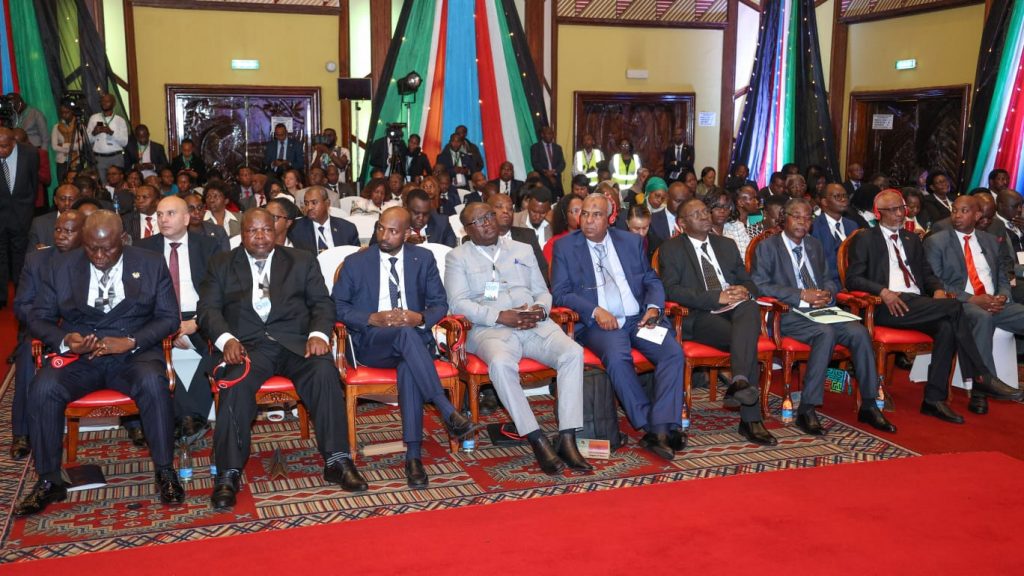

Deputy Chief Justice and Vice-President of the Supreme Court, Philomena Mbete Mwilu, emphasized the crucial role of judiciaries in strengthening the legislative, regulatory, and adjudicative frameworks on climate change.
“Our approach must be collaborative and our solutions contextual yet integrated,” she said.
This is a third event in a series of symposiums aimed at building the capacity of judges in Africa to apply and enforce environmental laws while promoting the rule of law in environmental matters. The previous two symposiums were held in Johannesburg and Mozambique in 2017 and 2018, respectively.
These symposiums serve as a crucial platform for African judges to exchange knowledge, experiences, and best practices, which will help develop and strengthen legal frameworks for environmental protection in the region. The discussions held during the event are expected to contribute to better environmental governance in Africa.




